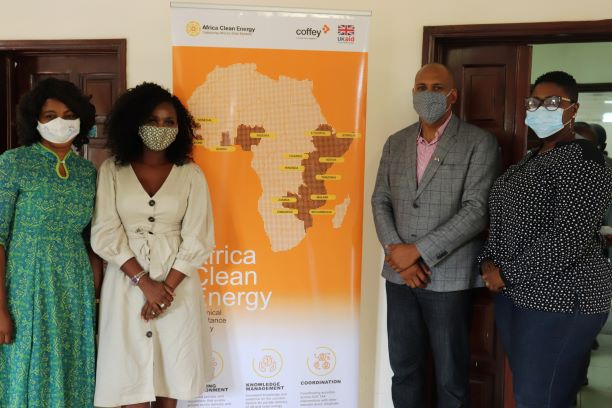
December 07, 2020 (232News)
FREETOWN – Sierra Leone has approved and adopted the second set of standards of Off-grid Solar (OGS) at a three days PV-TC Meeting.
PV-TC Meeting took place from the 2nd to 4th December 2020 at the Sierra Leone Standards Bureau (SLSB) main conference hall in Freetown.
Africa Clean Energy Technical Assistance Facility (ACE-TAF), Country Manager, Sierra Leone, Aminata B. Dumbuya disclosed that the ACE-TAF is a 4-year programme funded by the UK Government Development for International Development (DFID).
ACE-TAF aims are to catalyse a market-based approach for private sector delivery of renewable energy electrification technologies, with a focus on high quality stand-alone solar systems.
She disclosed further that 14 countries are under ACE-TAF four in West Africa Ghana, Nigeria, Senegal and Sierra Leone.
The Catalysing Africa’s Solar Markets is a programme complements government, private sector and donor initiatives to overcome many of the barriers preventing the development of markets for high quality stand-alone solar systems. This will contribute to increase access to reliable energy leading to better well-being and livelihood opportunities for poor and vulnerable people in sub Saharan Africa.

The Catalysing Africa’s Solar Markets is designed to follow up on DFID Energy Africa Compacts with activities tailored to support policy reform.
Sierra Leone Deputy Minister of Trade and Industry Abraham James Sesay-Jones said one of government priority is to improve the access of sustainable electrification through renewable energy especially rural electrification, using off grid solar system or solar home system.
He pointed out that Government has developed and rolled out the implementation of the renewable energy policy, the energy efficiency policy, finance Act 2016, 2017 and 2019 that have created the enabling environment to attract investment and private sector into the renewable energy trade.
The ministry of Trade and Industry’s mandate amongst others, he added is to promote private sector and standardization through her affiliated agencies, the Sierra Leone Export and Investment Agency and the Sierra Leone Standards Bureau.
The National Technical Committee for Solar Home Systems did the process of standardization in the renewable energy sector by developing and adopting international standards to Sierra Leone’s National Standards.
These National Standards, the Deputy Minister said will now be used by the SLSB to ensure that the product components are in compliance with the standards.
“Furthermore, I would like to extend deep appreciation to the “African Clean Energy” for their technical assistance to support the SLSB to adopt these standards for product compliance so that substandard solar home system products will not be dumped in our country anymore.”
These adopted standards will then be published by the ministry of Trade and Industry for implementation after due process.
Prof. Kelleh Gbawuru-Mansaray Chairman Solar Photovoltaic Energy Technical Committee and Dean, Faculty of Engineering and Architecture, FBC said solar energy remains the most promising renewable energy source for Sierra Leone when it comes to electricity generation. With an estimated average solar radiation of 1800 KWh/m2 year, he noted that solar photovoltaic generation has the greatest potential for wider deployment in Sierra Leone.
“While there are no standards currently in place, there are provisions in the Sierra Leone electricity sector reform roadmap to establish a set of technical criteria and required standards of performance for the off-grid sector.”
Prof. Thomas B.R. Yormah, Executive Director, Sierra Leone Standards Bureau recalled that from the ISO 9001 perspective, the key goal in standards development is fitness-for-purpose and customer satisfaction for goods and services.
He said in order to protect the consumers and the economy it makes sense that the landscape is sanitised by adopting standards that will ensure that the most suitable products for the economy and environment are imported and marketed.

